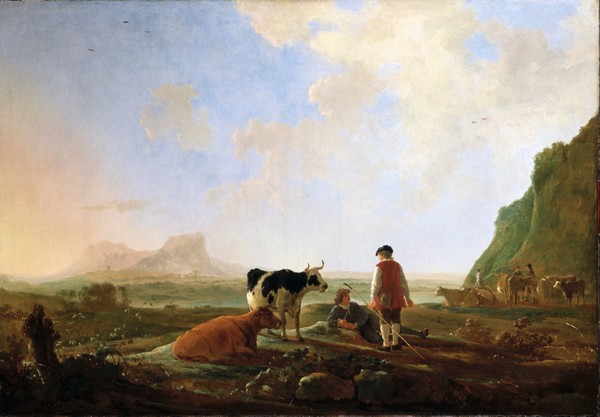
The opera Guillaume Tell by Gioachino Rossini, premiered in 1829, is the most famous musical version of Wilhelm Tell, the drama published by Friedrich von Schiller in 1804. Although the opera is hardly performed, the piece that opens it has become independent and is one of the most popular in the classical repertoire; everybody recognizes that brilliant music even if they cannot identify it. But Rossini is not the only composer who paid attention to the work by Schiller. Franz Liszt set into music in 1840 (and made a second version in 1859) the songs of the three characters that open the drama: the fisherman Ruodi, the herdsman Kuoni and the hunter Werni; it is the cycle Drei Lieder aus Schillers "Willhelm Tell" and we heard some time ago the fisherman's song, Der Fischerknabe.
Robert Schumann also put music to one of these three songs, that of the herdsman; Des Sennen Abschied is a little jewel, like so many songs that he wrote from 1849 onwards. 1840 is known as Schumann's liederjahr and there is every reason to listen to the works of that year, but I will always insist that you listen to the rest of his works to (re)discover the gems that it hides.
One of the cycles that Schumann wrote in 1849, during the revolution in Dresden, was the Liederalbum für die Jugend, Op. 79, a collection of twenty-eight songs intended to be performed by children; he ordered them according to their difficulty, so that the young performers would discover the new pieces as they overcome the difficulties of the previous ones; Des Sennen Abschied is the no. 22.
The poem has an ABA structure. In the first stanza, the shepherd bids farewell to the pastures when the summer ends and has to return home; in the second, he dreams of May; when nature wakes up, he can return. The third stanza is identical to the first. Schumann's Lied follows this same structure, with the stanzas separated by short piano interludes that retrace the motif we first hear in the prelude, and we will finally hear in a longer postlude. The accompaniment has a special charm and I think that is what catches the listener. The song is quiet, the farewell is more melancholic than sad, but it has one detail that particularly draws attention: at the end of the second stanza, Schumann uses a common resource among composers, repeating the words he wishes to emphasize, "im lieblichen Mai"; unexpectedly, however, the repetition is truncated, and the pastor only goes so far as to call and let the piano lead us alone to the third stanza.
The most immediate interpretation of this omission is that the pastor's voice is broken by emotion and cannot continue to sing. There is another, however, related to the events that were being experienced in those months: the revolution. Since there were serious consequences every time censorship found with this word, people sometimes referred to it as spring, it was enough to understand; a spring that, while Schumann wrote this cycle between April and May, was violent and bloody. In the opinion of several musicologists, it wasn't by chance, either, that the composer musicalized precisely at that time some verses of a work that spoke of a people's desire for freedom. So it might well be that this Mai that the shepherd cannot pronounce expresses the pain for a spring that would not end as Schumann would have liked.
Listen to Des Sennen Abschied performed in a live recording by Sophie Daneman and Julius Drake. And, if you like it, listen also to the three songs composed around 1849 you'll find below, in the Related Articles (among them, Die Sennin [The Herdswoman]; it appears that the shepherds inspired Schumann in a special way.)
Ihr Matten, lebt wohl,
Ihr sonnigen Weiden!
Der Senne muß scheiden,
Der Sommer ist hin.
Wir fahren zu Berg, wir kommen wieder,
Wenn der Kuckuck ruft, wenn erwachen die Lieder,
Wenn mit Blumen die Erde sich kleidet neu,
Wenn die Brünnlein fließen im lieblichen Mai.
Ihr Matten, lebt wohl,
Ihr sonnigen Weiden!
Der Senne muß scheiden,
Der Sommer ist hin.
You meadows, farewell,
you sunny pasturelands!
The herdsman must leave,
for summer is past.
We travel to the mountain and return
when the cuckoo calls, when songs awaken,
when the earth adorns itself anew with flowers,
when the springs flow in lovely May.
You meadows, farewell,
you sunny pasturelands!
The herdsman must leave,
for summer is past.
(translation by Emily Ezust)


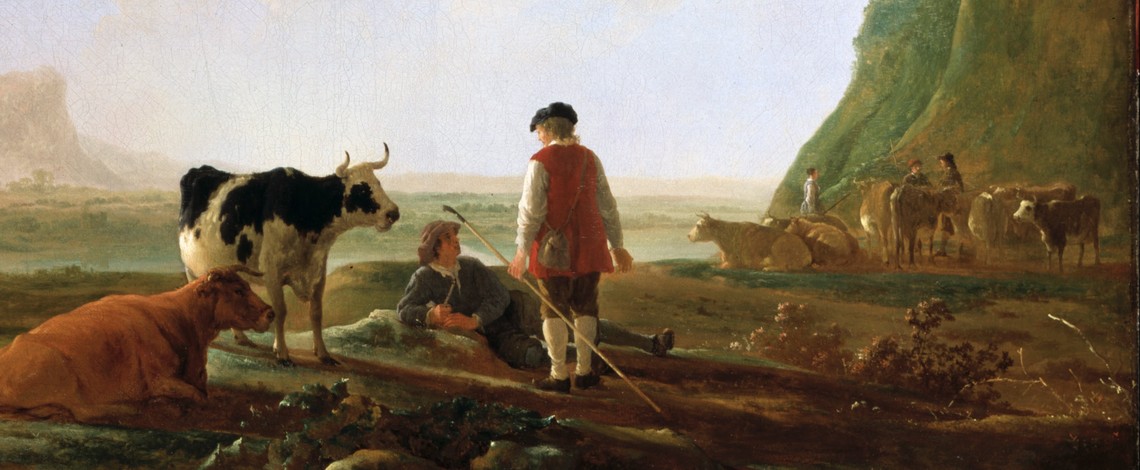
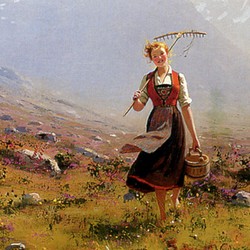
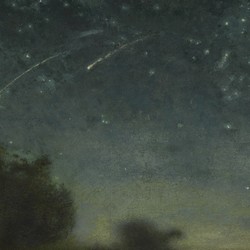
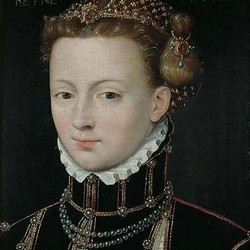












Comments powered by CComment